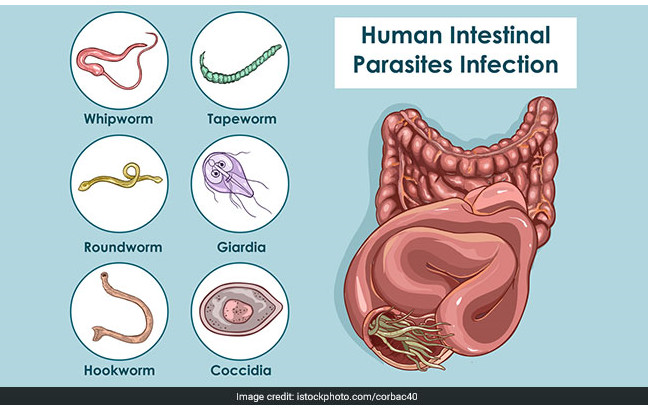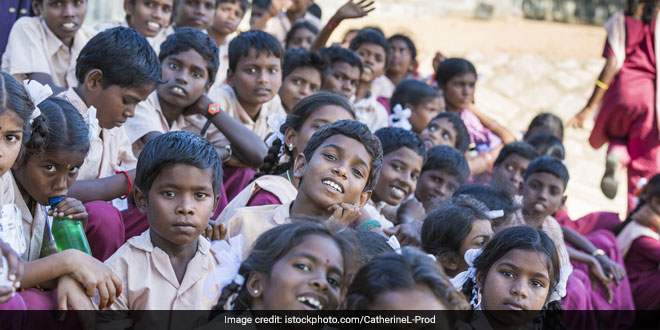New Delhi: About 241 million children between the ages 1 – 14 years in India are at risk of parasitic intestinal worms, known as Soil-Transmitted Helminths (STH), according to World Health Organisation. That is about 68 per cent of India’s or 7 out of 10 children in this age-group are at risk of STH infections. Further that means that India accounts for approximately 28 per cent of the total number of children globally estimated to be at-risk of STH infections. These infections can have a major impact on the nutritional status of children. But what exactly are STH and deworming. Here’s all you need to know:
1. Types Of Worms Affecting Children:
There are three main types of STH that infect people, roundworm (Ascaris lumbricoides), whipworm (Trichuris trichiura) and hookworms (Necator americanus and Ancylostoma duodenale). The adult worms live in human intestines for food and survival where they produce thousands of eggs, each day. Those who are infected then become the source for spreading the infection by defecating in the open and contaminating the soil. Vegetables grown in this contaminated soil or water sources polluted due to the open defecation then spread the worms through consumption or contact with water through washing of hands or bathing or even simply by playing in the open grounds where the soil carries the worms.

The adult worms live in human intestines for food and survival where they produce thousands of eggs, each day
Also Read: Banega Swasth India: Nutrition Experts Weigh In On The Crisis Of Malnutrition In India
2. Effects Of Worms Among Children
Intestinal worm infections affect child morbidity as they obstruct the nutritional status of children they infect in several ways. The most common effect of worms is anaemia, which occurs as these worms feed on host (human body) tissues, including blood, resulting in loss of iron and protein.
Children with worms are often underweight and have stunted growth as worms can increase the malabsorption, a condition that prevents absorption of nutrients through the small intestine. For instance, roundworms may absorb the Vitamin A in the intestine. Some worms can also lead to loss of appetite, reducing nutritional intake and physical fitness, and causing to diarrhoea and dysentery.

Intestinal worm infections affect child morbidity as they obstruct the nutritional status of children they infect in several ways
3. Deworming
The process of killing the intestinal worms through medication is known as deworming. The Government of India provides and recommends two safe drugs in the form of tablets, namely Albendazole and Mebendazole, for the treatment of intestinal worms. The dosage is prescribed on the bases of a child’s age.
4. National Deworming Day
With the aim to spread awareness and eradicate intestinal worms among children in India, the Ministry of Health and Family Welfare, observes the National Deworming Day (NDD) twice a year on February 10 and August 10 across the nation, since 2015. The NDD is followed by Mop-Up Day (MUD) a few days later, with the intent of deworming children who missed the dose on the main day. The activity is carried out in all government and government aided schools as well as Anganwadi centers throughout the country.
5. Scope Of National Deworming Day
The Deworming Day is implemented through the combined efforts of Department of School Education and Literacy under Ministry of Human Resource and Development, Ministry of Women and Child Development and Ministry of Drinking Water and Sanitation and is the largest single day public health program in the world, as per UNICEF.
According to the government data, the programme started in February 2015 by covering about 8.9 crore children and adolescents falling in the age group of 1-19 years, and saw a massive improvement in the number of beneficiaries in just one year by covering 17.9 crore people in February 2016. As of NDD 2019, the programme has claimed to reach about 32.81 crore children and adolescents, an increase of 23.91 crore children in 5 years.































